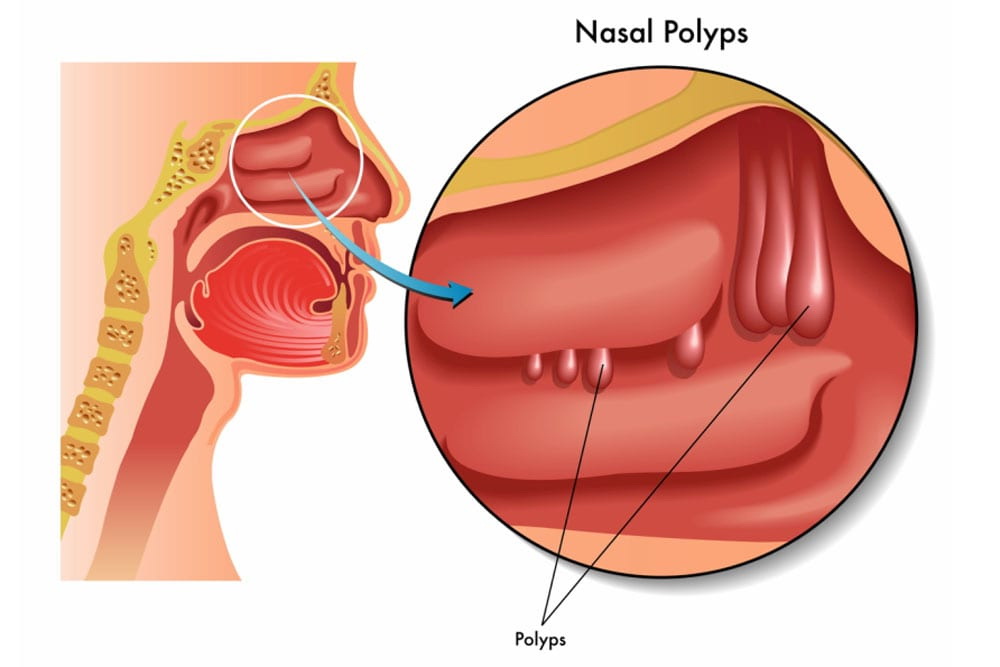Mr David Roberts
ENT Consultant Surgeon
Specialist expertise: Endoscopic Neurosurgery, Ear, Nose and Throat, Endoscopic Sinus Surgery, Nasal Dysfunction, Head and Neck Surgery, Rhinology.
A nasal polyp is a swelling of the lining of the nose, usually due to inflammation. They often originate from the ethmoid sinuses, which drain into the sidewall of the nasal cavity.

A nasal polyp is a swelling of the lining of the nose, usually due to inflammation. They often originate from the ethmoid sinuses, which drain into the sidewall of the nasal cavity.
Conditions associated with polyps include:
Nasal polyps are more common in adults and are rare in children between the ages of 2-10 years. If polyps appear in children, they should be examined to exclude cystic fibrosis.
The chance of developing nasal polyps is between 1 and 20 for every 1,000 people and the chance declines after the age of 60. They are more common in men but, in those with late onset asthma, it can also occur in women.
The exact reason why some people get nasal polyps is not known. However, 90% of nasal polyps include inflammatory cells (known as eosinophilia) that are associated with allergies, so polyps can be associated with allergy and infection.
Polyps look like small grapes and can appear in isolation or in clusters in the nose. They can cause:
An endoscopy (using a small tube with a camera on the end) is used to see up the nose and will exclude any infection or any unusual feature.
There are no specific treatments for nasal polyps.
However, they are known to shrink with the use of nasal sprays or drops containing nasal steroids in up to 80% of people. Many can take up to six weeks before they fully take effect. Stronger steroid drops can be used carefully in short courses. Steroid tablets can also work to relieve symptoms, but the effects are temporary and they should be used in moderation because of potential side effects.
Surgery can be performed to remove nasal polyps that block the nose. However, polyps come back after an average of about four years in 3 out of 4 patients.
If they do continue to return, cleaning out and opening up the sinuses is thought to increase the amount of time before they return. Local medical treatment using anti-inflammatory sprays or drops may still be needed.
All our private ENT specialists at OneWelbeck in London are leaders in their sub-specialties, providing the highest quality treatment to ensure you receive the best available care.